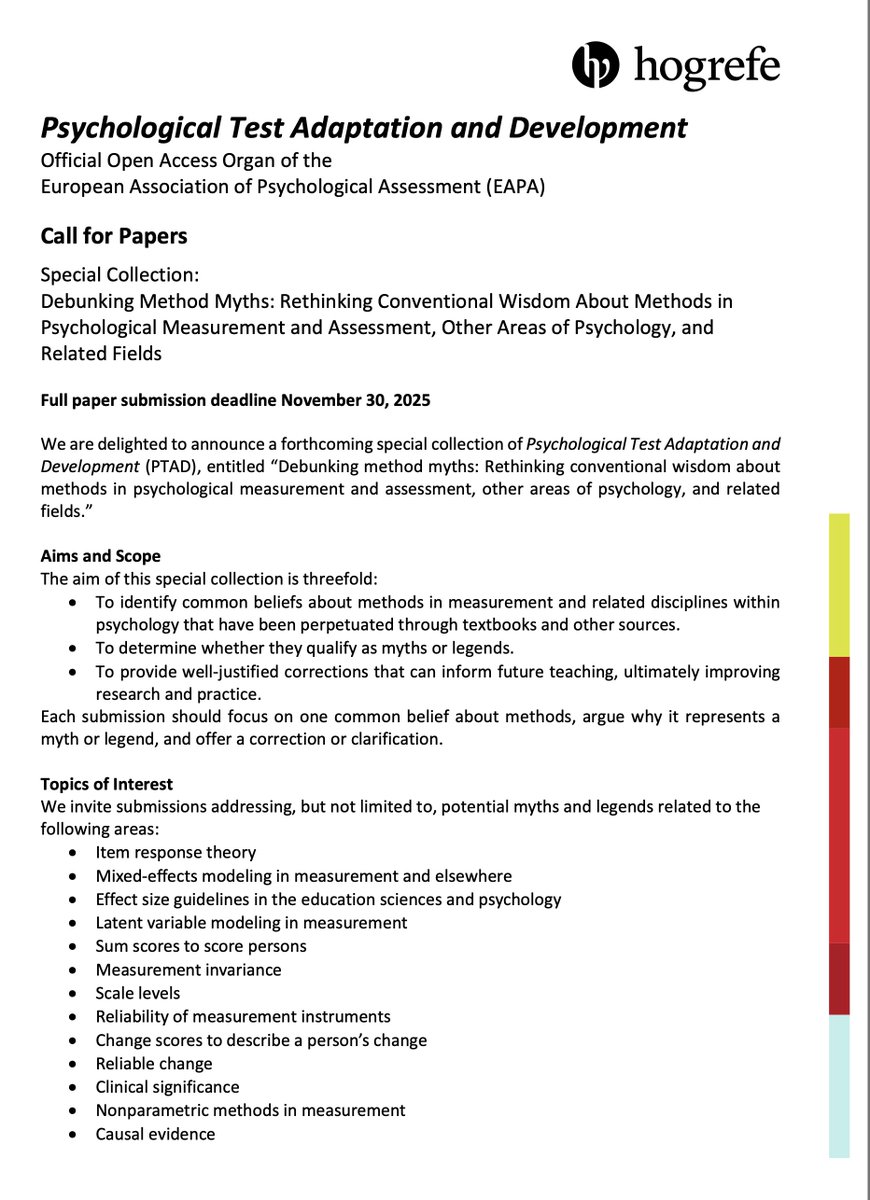
Psychological Test Adaptation and Development
@ptad_journal
Official account of the journal editors
ID: 1204341301690478592
https://www.hogrefe.com/eu/journal/psychological-test-adaptation-and-development 10-12-2019 10:06:38
123 Tweet
293 Followers
92 Following

📢 We’re catching up on past PTAD research! 🌏 Oshiro et al. (Briana Oshiro) tested the Oxford Utilitarianism Scale in a large-scale study across 15 languages, raising key questions about the equivalence of cross-cultural moral reasoning. 🔗 doi.org/10.1027/2698-1… European Association of Psychological Assessment


✨ New in PTAD! 🌍 Darici et al. validated the German Short Form Cultural Intelligence Scale, confirming a second-order factor structure and its predictive validity for intercultural experiences. 🔗 doi.org/10.1027/2698-1… European Association of Psychological Assessment
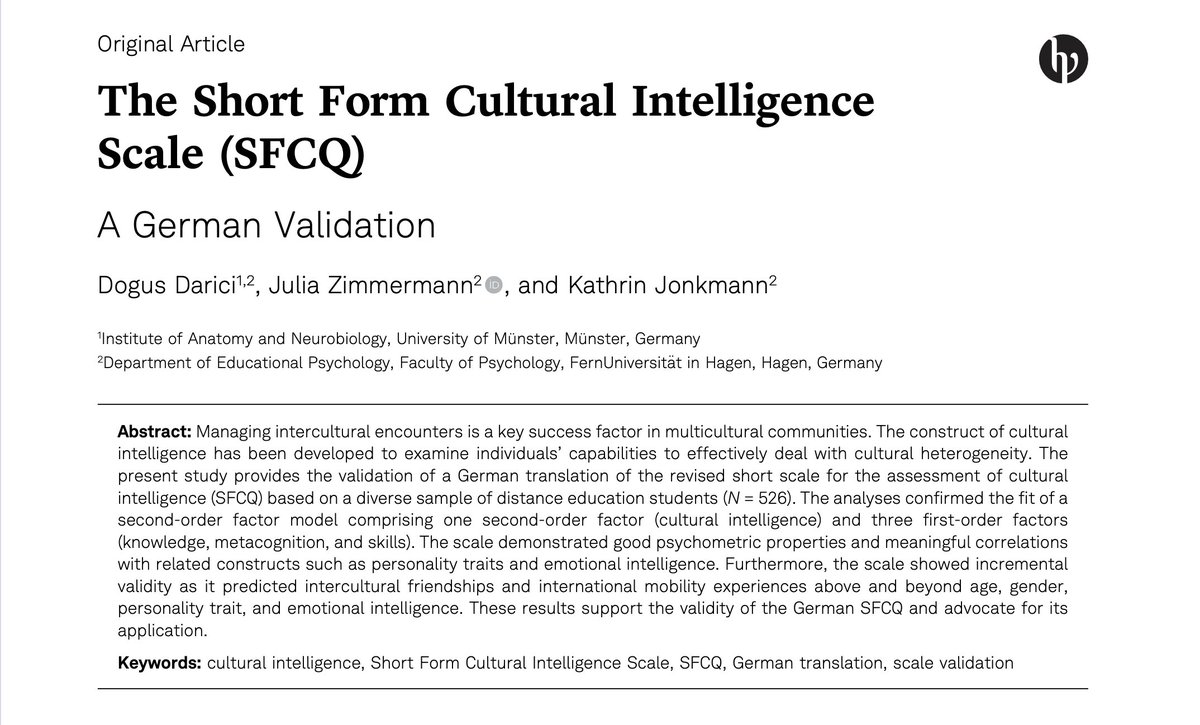

✨ New in PTAD! ⚖️ Bäker et al. examined moral self and identity across children, adolescents, and adults, finding partial measurement invariance across age groups. 🔗 doi.org/10.1027/2698-1… European Association of Psychological Assessment


📢 We’re catching up on past PTAD research! 💬 Sarling et al. studied the Swedish Empathic Experience Scale (EES), confirming its two-factor structure, reliability and validity. 🔗 doi.org/10.1027/2698-1… European Association of Psychological Assessment
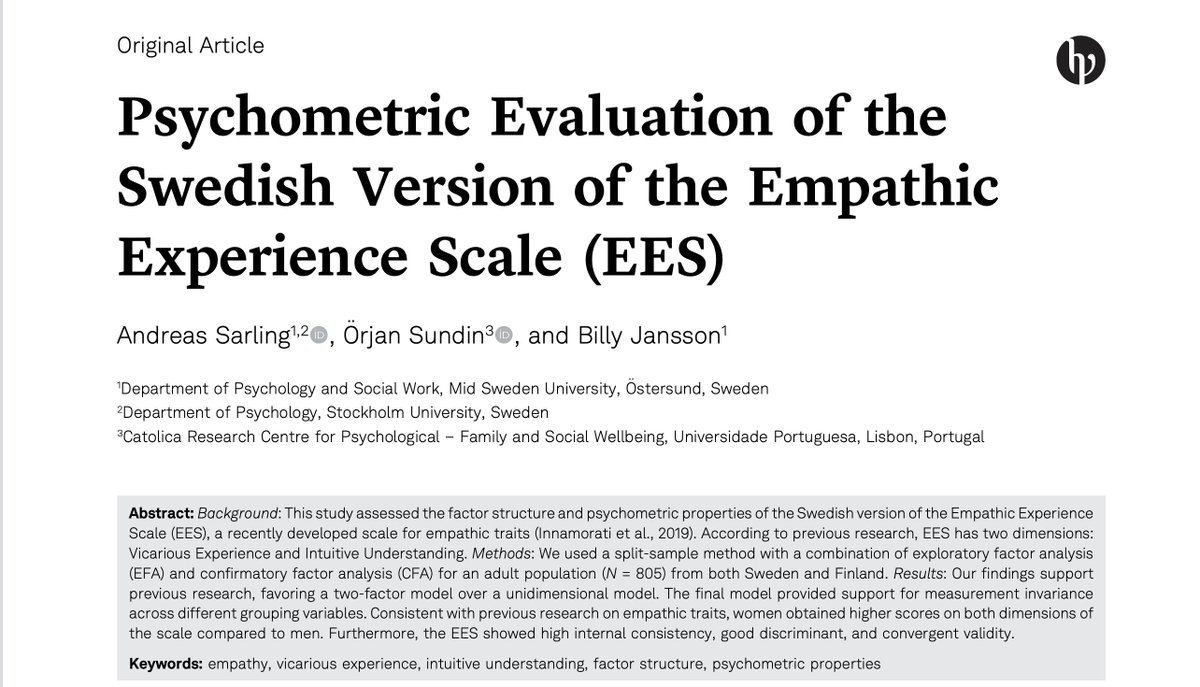

📢 We’re catching up on past PTAD research! 💞 Weilenmann et al. validated the German Intimacy Scale (IS), showing a strong general intimacy factor and a distinct sexual intimacy component. 🔗 doi.org/10.1027/2698-1… European Association of Psychological Assessment
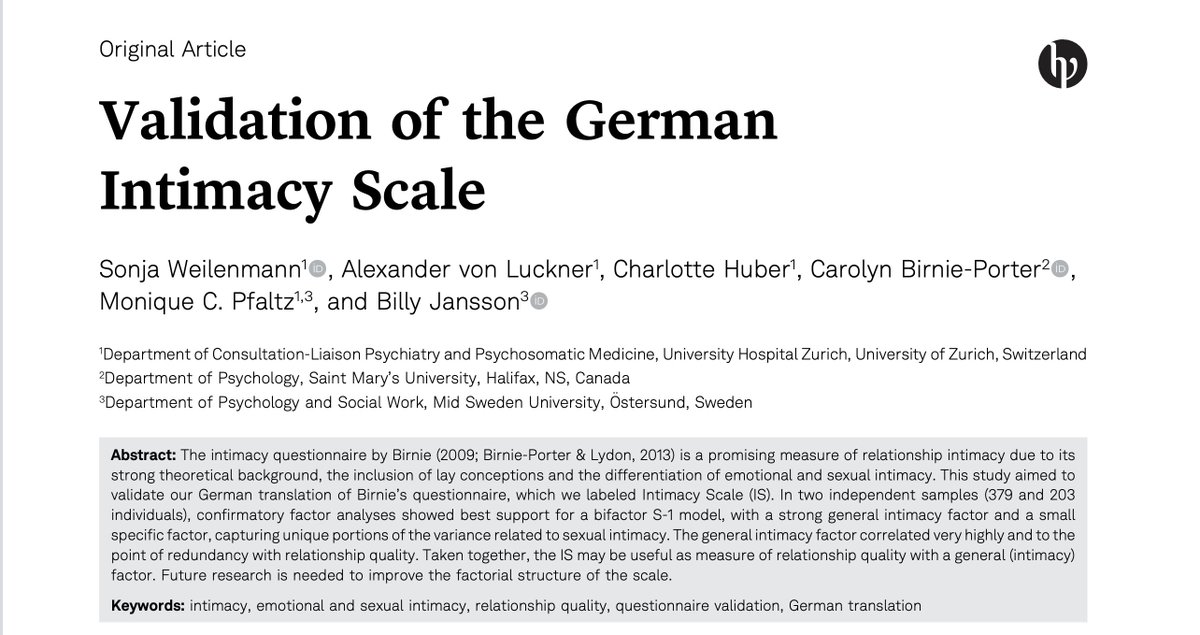

📢 We’re catching up on past PTAD research! 🤫 Why do we gossip? Yucel (Meltem Yucel (Melt-um You-Jell)) & Moulder's revised Gossip Functions Questionnaire (RGFQ) confirms two main motives: enforcing social norms & maintaining relationships. 🔗 doi.org/10.1027/2698-1… European Association of Psychological Assessment


📢 We’re catching up on past PTAD research! 🧘♂️Gamaiunova et al. validated the French version of the Experiences Questionnaire (EQ-F), a measure of decentering—the ability to observe thoughts and emotions without getting caught up in them. 🔗 doi.org/10.1027/2698-1… European Association of Psychological Assessment


📢 We’re catching up on past PTAD research! 😊 Lehmivaara et al. validated the Swedish Types of Positive Affect Scale (TPAS), supporting three distinct forms of positive affect: Activated PA, Relaxed PA, and Safe/Content PA. 🔗 doi.org/10.1027/2698-1… European Association of Psychological Assessment


📢 We’re catching up on past PTAD research! 🤝 Duwe & Titzmann examined bicultural identity integration among ethnic minority adolescents in Germany, revealing a four-factor structure instead of the expected two. 🔗 doi.org/10.1027/2698-1… European Association of Psychological Assessment
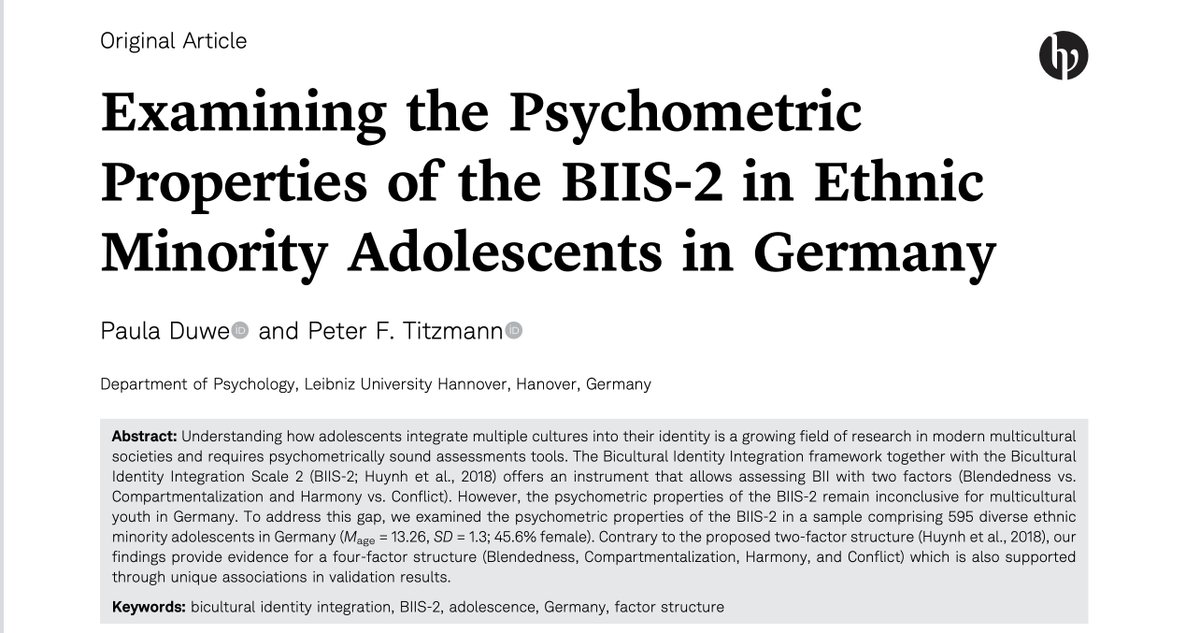

📢 We’re catching up on past PTAD research! 💁♂️ Dericioğlu et al. tested the German adaptation of the Primary Levenson Self-Report Psychopathy Scale, identifying a revised two-factor model with egocentricity and deceitfulness. 🔗 doi.org/10.1027/2698-1… European Association of Psychological Assessment


📢 We’re catching up on past PTAD research! 🎭 Raanes et al. validated the Norwegian Emotion Beliefs Questionnaire, confirming its three-factor structure for assessing beliefs about emotions. 🔗 doi.org/10.1027/2698-1… European Association of Psychological Assessment


📢 We’re catching up on past PTAD research! 🎖️ Padilha et al. adapted and validated the Courage Measure for Brazilian adolescents, confirming a one-factor model with acquiescence control. 🔗 doi.org/10.1027/2698-1… European Association of Psychological Assessment


📢 We’re catching up on past PTAD research! 😶 Zahid et al. revised the Urdu TAS-20 to better assess alexithymia, supporting its reliability, three-factor structure, and cross-cultural validity. 🔗 doi.org/10.1027/2698-1… European Association of Psychological Assessment
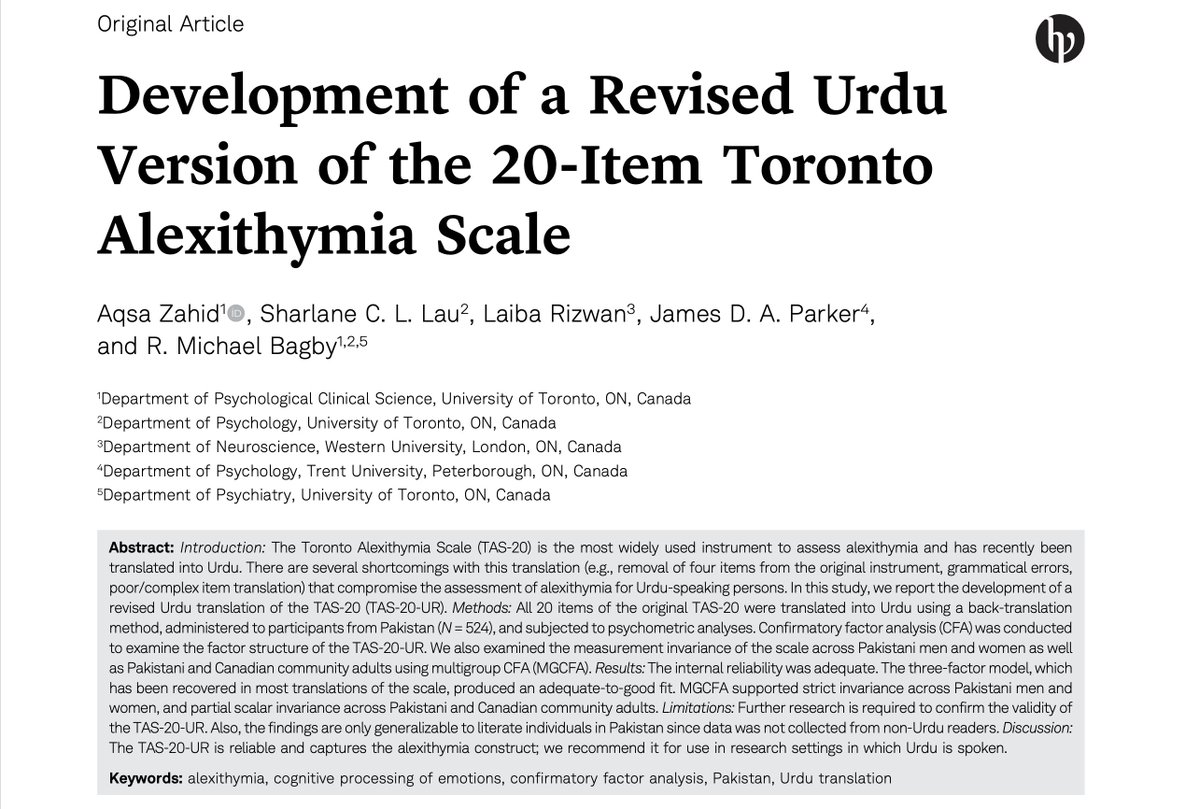

✨ New in PTAD! 🧠 Vancappel et al. validated the French IADQ, linking adjustment disorder to transdiagnostic skills like emotion regulation. 🔗 doi.org/10.1027/2698-1… European Association of Psychological Assessment
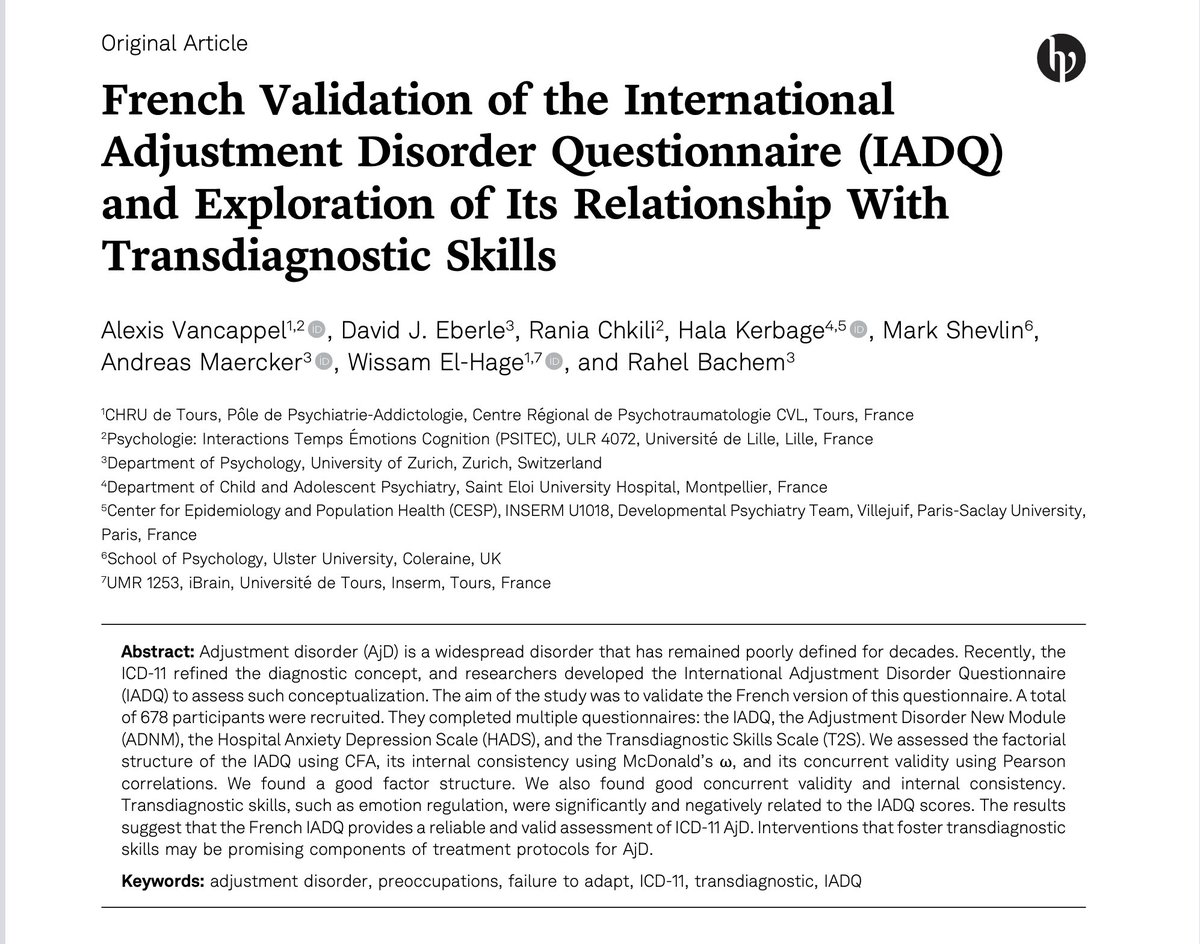

✨ New in PTAD! ⚙️ Oeljeklaus et al. compared AI-generated and expert-developed personality scales—finding similar reliability and validity but differences in model fit and measurement invariance for gender. 🔗 econtent.hogrefe.com/doi/10.1027/26… European Association of Psychological Assessment


✨ New in PTAD! 🕵️♂️ Grønnerød et al. validated the Norwegian D70, showing that a main plus five-factor solution best captures the structure of the dark core of personality. 🔗 doi.org/10.1027/2698-1… European Association of Psychological Assessment
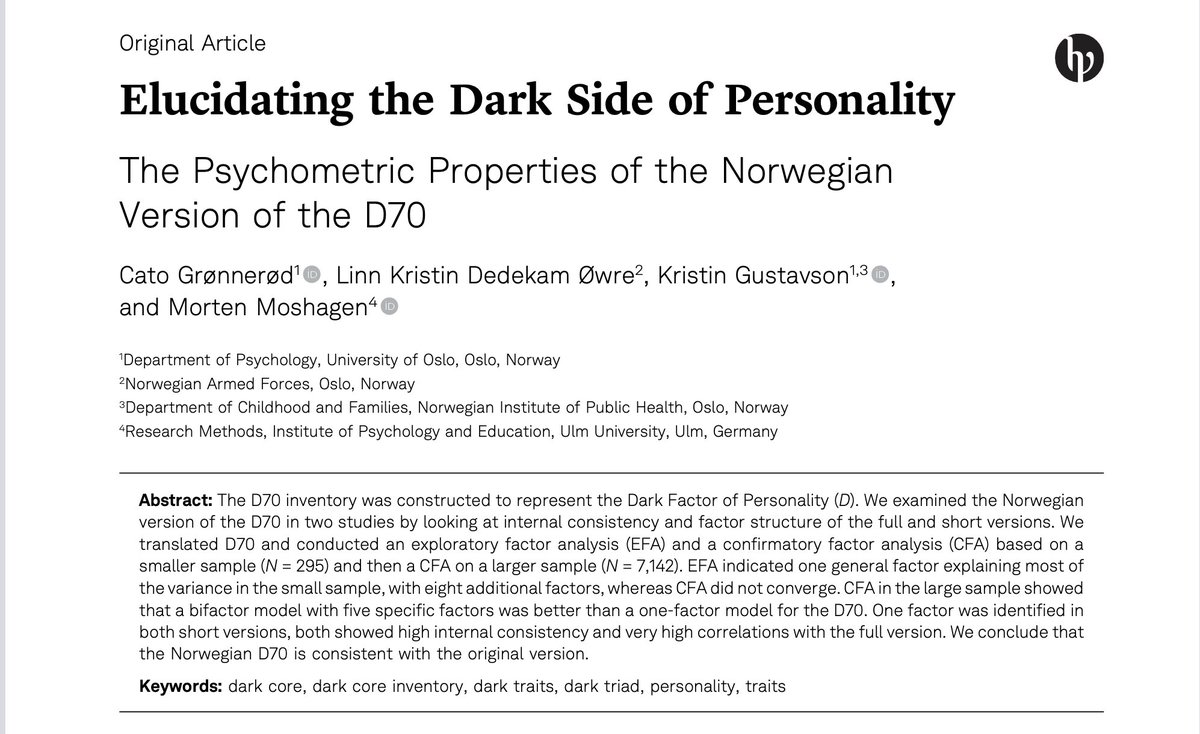

✨ New in PTAD! 💞Pacheco (Meritxell Pacheco) et al. developed and validated the EIPAR: a Spanish scale to assess couple identity for use in research and clinical contexts. 🔗 doi.org/10.1027/2698-1… European Association of Psychological Assessment


✨ New in PTAD! 🇧🇷 Guilhermino et al. adapted the Short Dark Tetrad (SD4) to Brazilian Portuguese and confirmed its four-factor structure and gender invariance. 🔗 doi.org/10.1027/2698-1… European Association of Psychological Assessment




